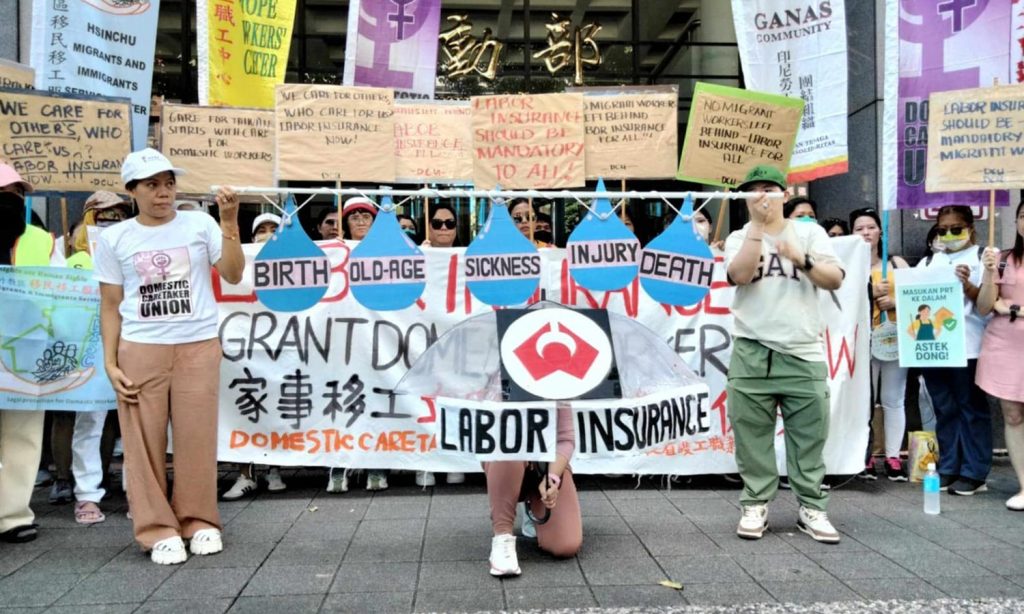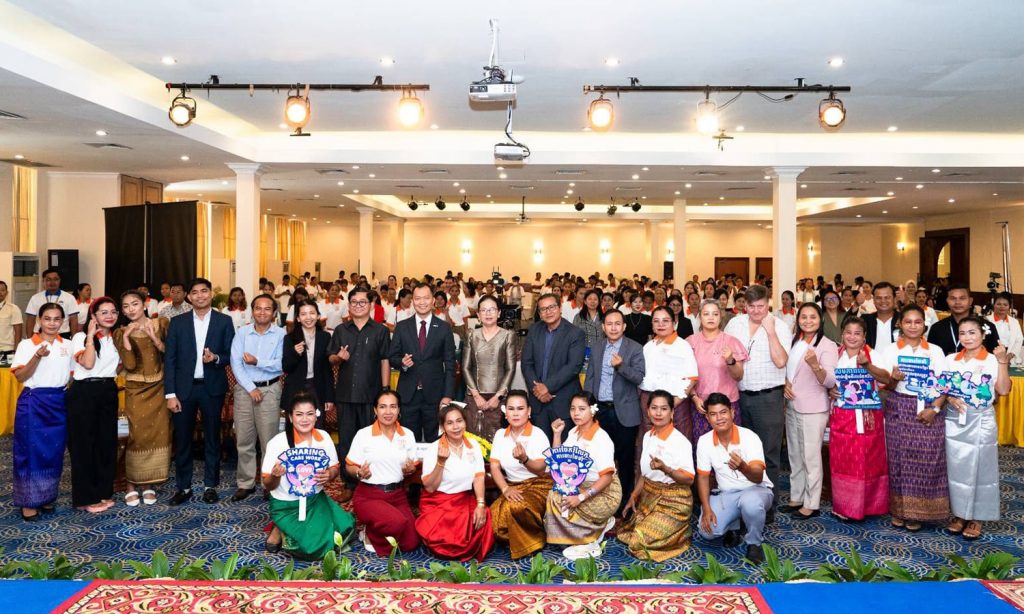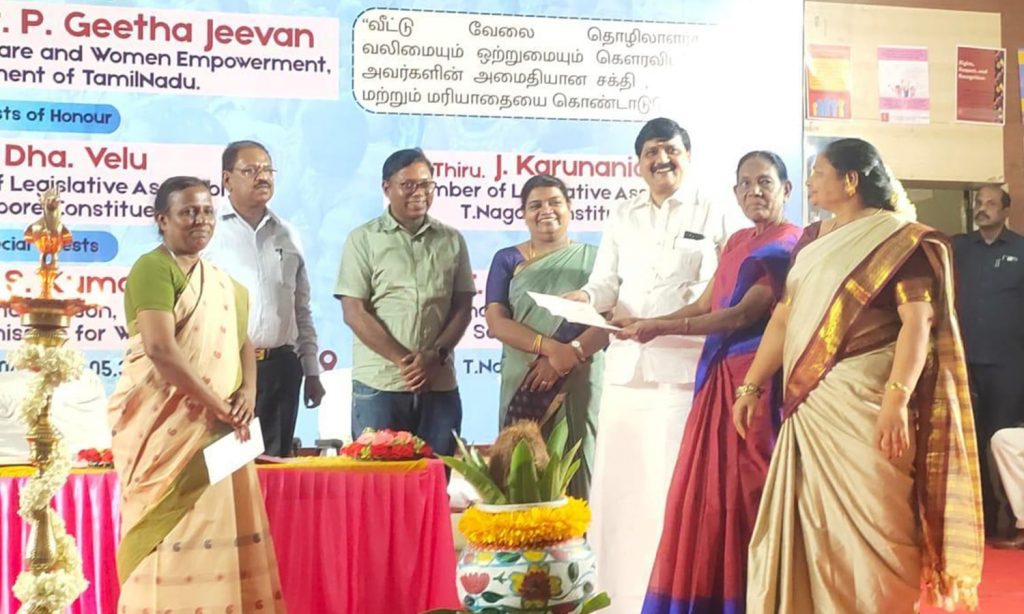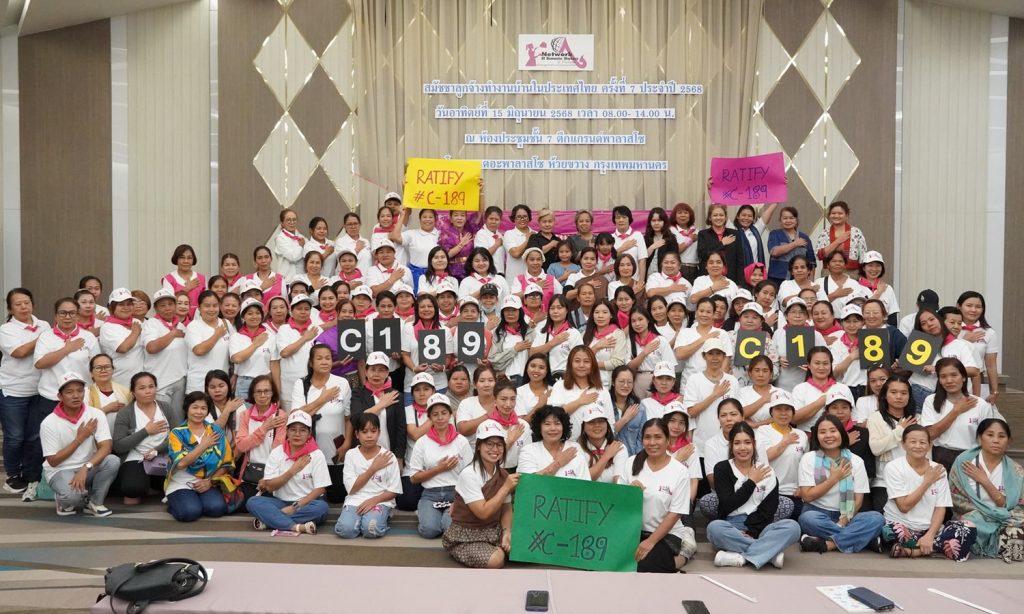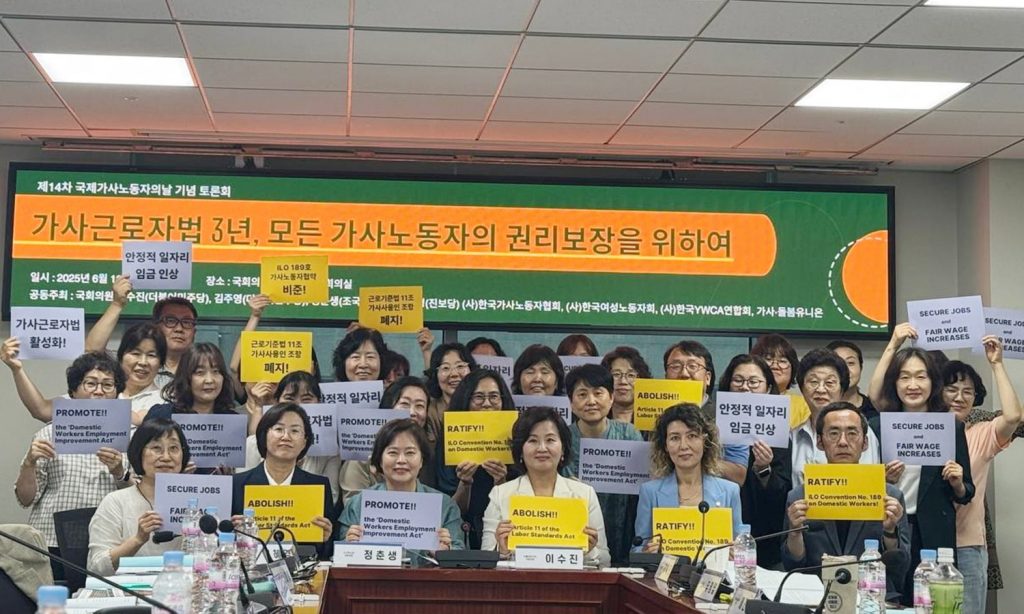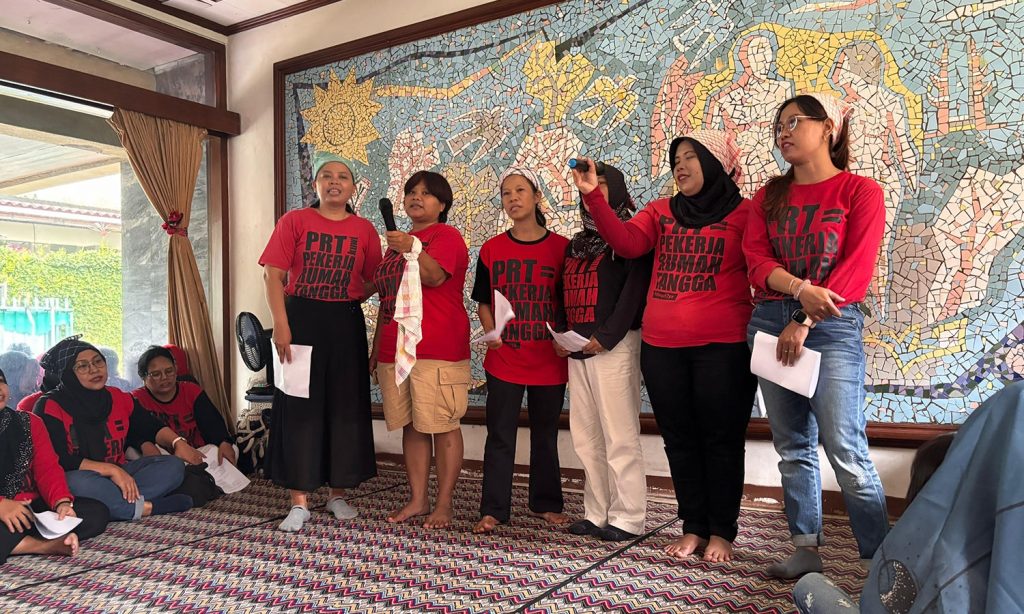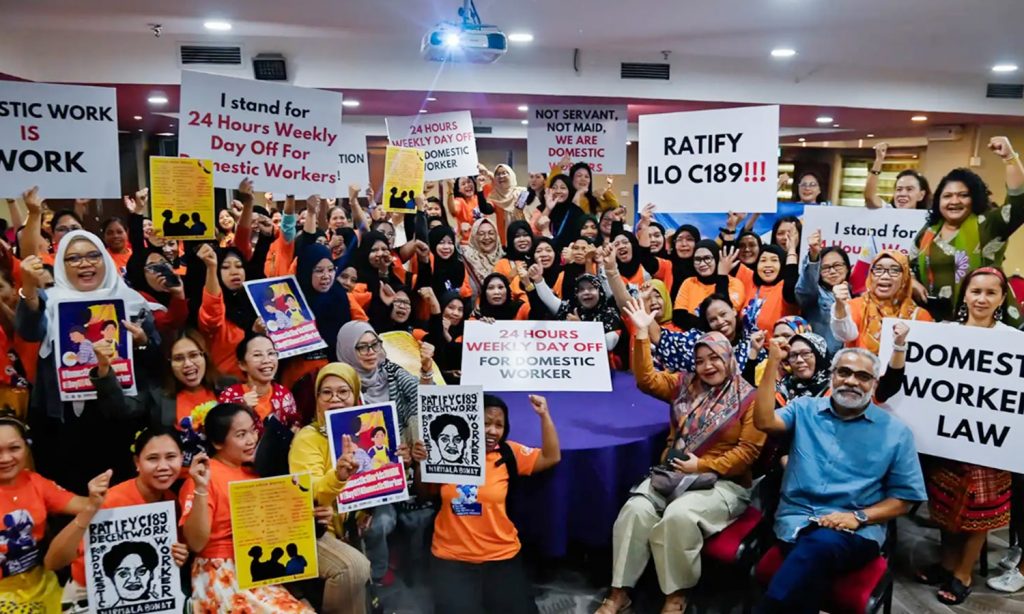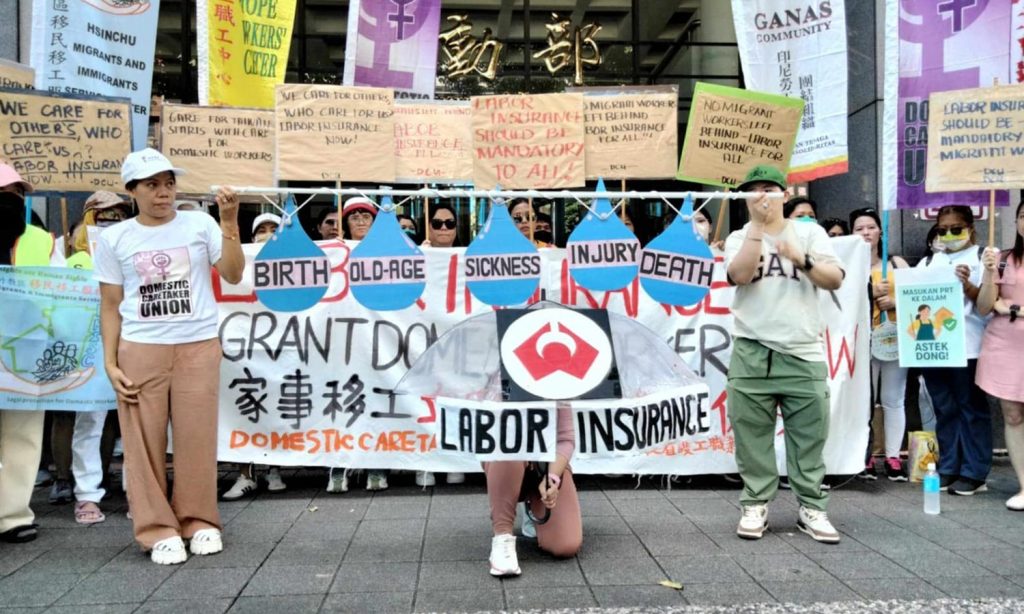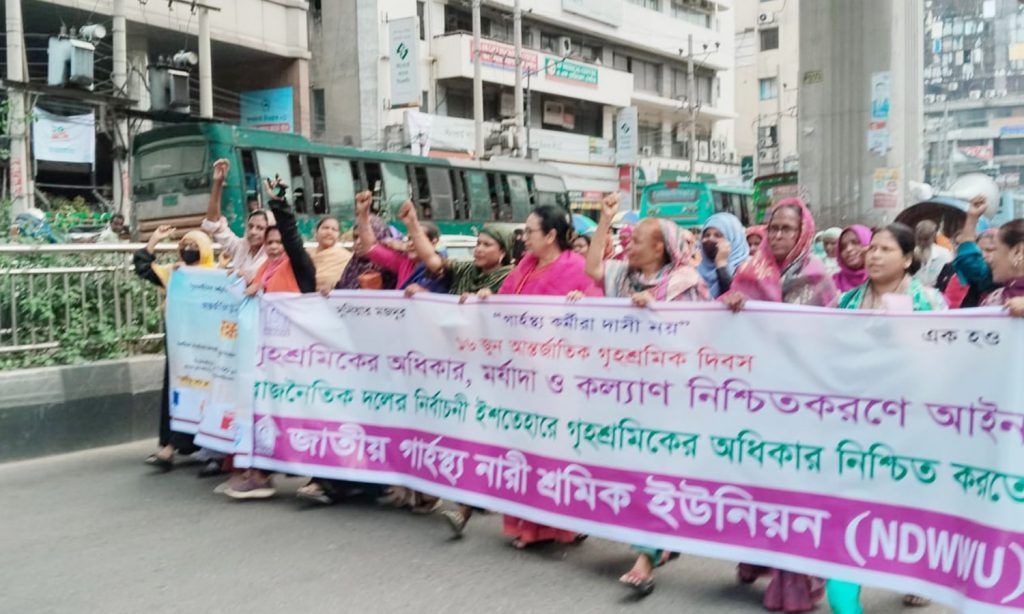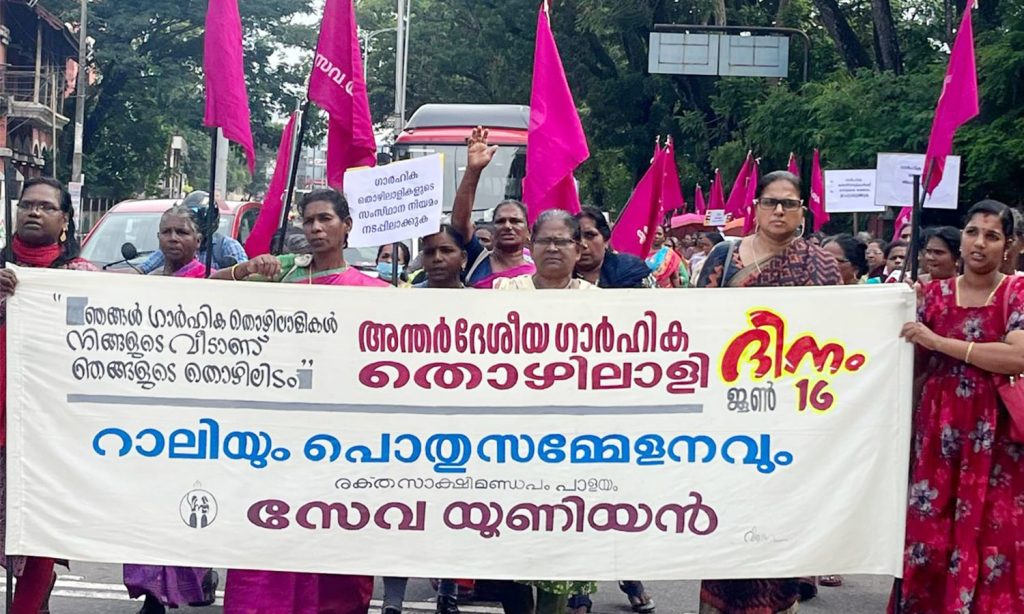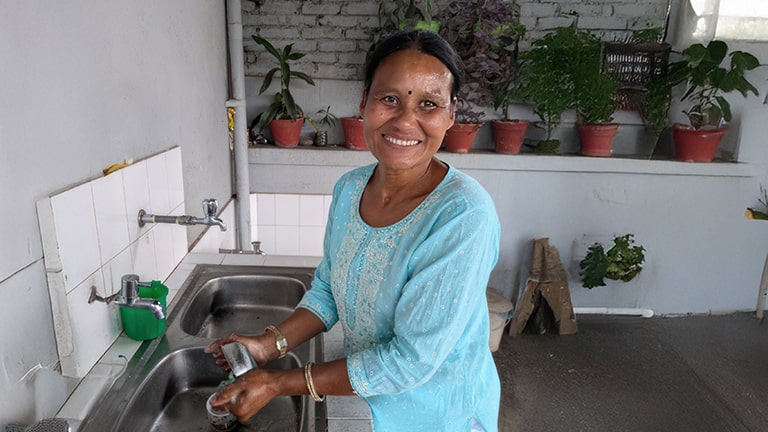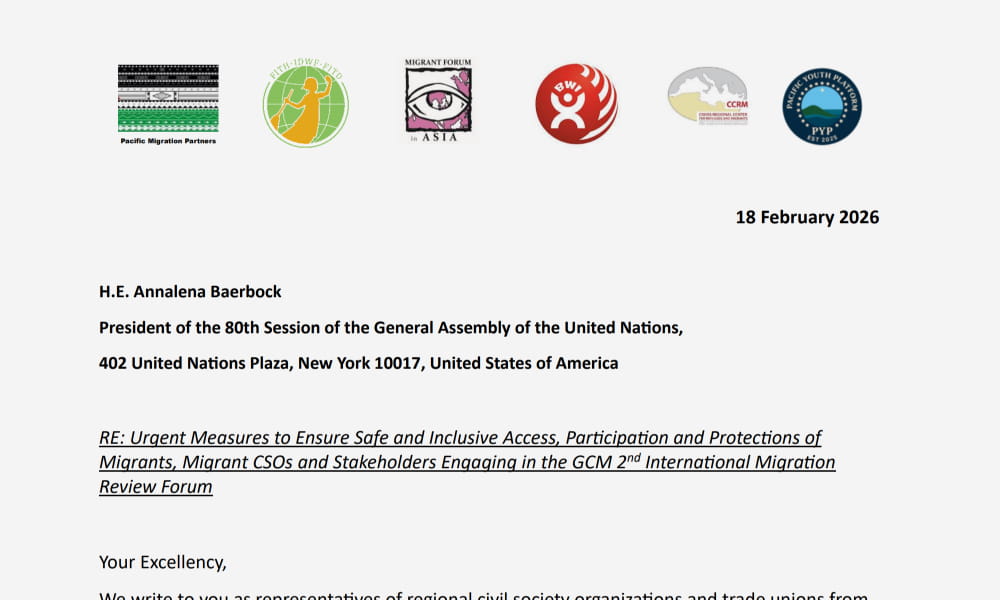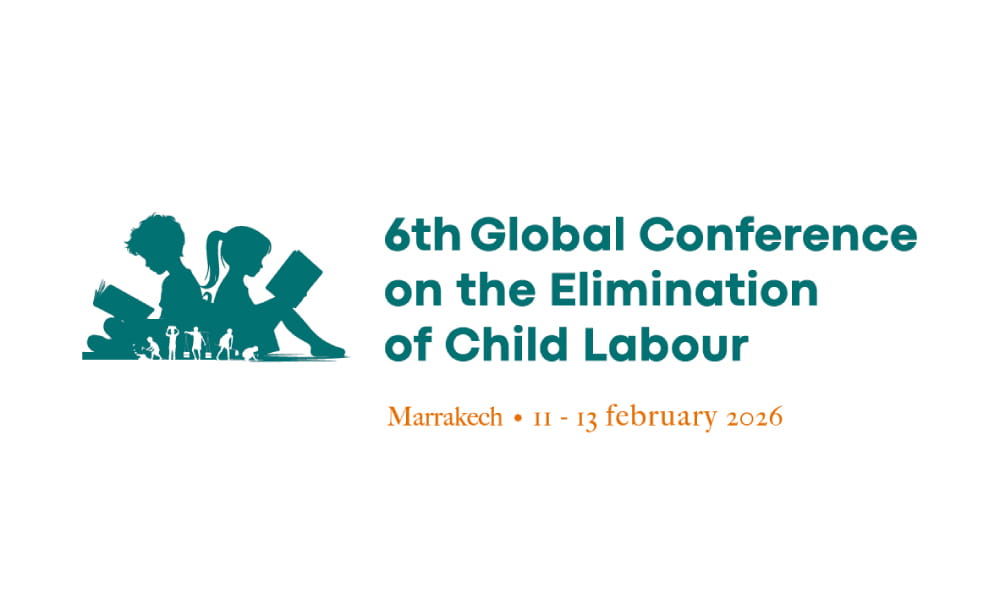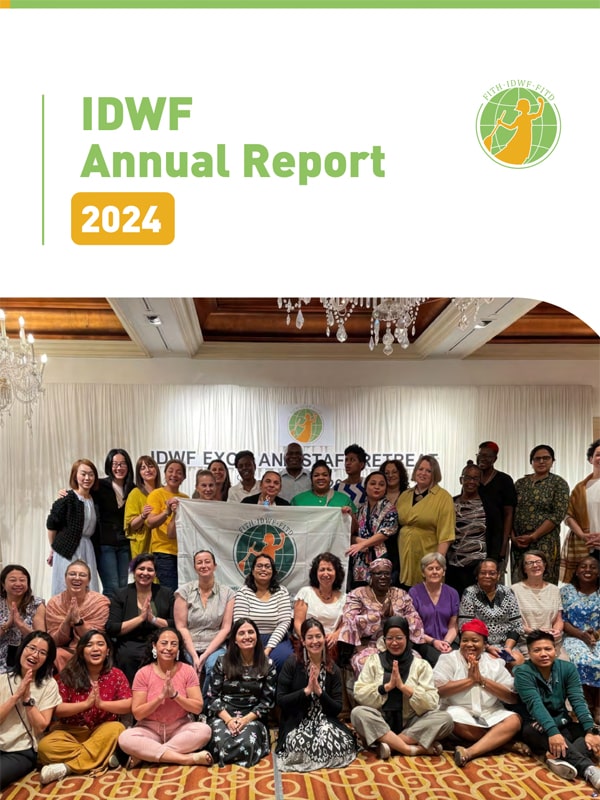By Fish Ip, IDWF Asia
Affiliates of the International Domestic Workers Federation (IDWF) across Asia have mobilised to celebrate International Domestic Workers Day (IDWD). From policy demands to jubilant celebrations, affiliates demand dignity and protection: governments are urged to ratify C189, labour laws are reformed to recognise domestic workers as workers, and domestic workers are included in social protection schemes.
Labour Law Reforms – Domestic Workers Are Workers
In Asia, domestic workers are mostly excluded from labour law protections. While in very few countries and places where domestic workers are included in labour law, the legal protection is limited or, in most cases, rarely implemented.
In Indonesia and Bangladesh, with the long-time fight by domestic workers for labour law reforms, the two governments have somehow promised to recognise domestic workers in labour laws. In Bangladesh, the National Domestic Women Workers Union (NDWWU) submitted their demands to the Labour Reform Commission under the interim government in May 2025. It is anticipated that the Labour Act will be amended in July 2025. In Indonesia, across several provinces where domestic workers are organised into unions under the Jala PRT, including Jakarta, domestic workers gathered to continue their two-decade fight for the Domestic Workers Law (UUPRT). Indonesian country leaders have publicly expressed support for the passage of the Domestic Workers Bill, which was introduced in 2023 by then-President Joko Widodo. The current President, Prabowo Subianto, and Vice-President, Gibran Rakabuming, have both continued to support the Domestic Workers Law. However, the bill was stuck in the Indonesian parliament, though it had the status of a DPR RI initiative bill.
In India, IDWF affiliates, coordinated through the National Platform for Domestic Workers, continue to mobilise nationwide to demand a comprehensive law for domestic workers. It is worth noting that in early 2025, the Indian Supreme Court, comprising Justice Surya Kant and Justice Ujjal Bhuyan, in its decision in the case of Ajay Malik vs. State of Uttarakhand, highlighted the necessity for comprehensive legislative action to safeguard domestic workers from exploitation. However, the Modi government does not respond to it, and the worst anti-labour measures continue. Affiliates in India continue to mobilise domestic workers at all levels.
In Kerala, India, the only Indian state where the government has tabled a domestic workers bill, SEWA staged a protest and public assembly calling for the adoption of the Bill.
In other Asian countries and places where domestic workers are recognised in labour laws, e.g., the Philippines, Nepal, Hong Kong, Thailand, and partially in South Korea, IDWF affiliates are engaging parliament members, and government officials on implementation mechanisms and expanding the legal coverage of domestic workers.
In South Korea, on June 16th, 2025, Korean Domestic Workers Union (KDWU), together with Korean Women Workers Association, FKTU, and Korea YWCA, invited members of the Korean National Assembly to review the (lack of) effectiveness of the Act on Improvement of Employment of Domestic Workers since its enactment three years ago. The Act excludes domestic workers who are in an employment relationship with individual employers but only includes those hired under government-certified domestic service providers. As of the end of 2024, there were a total of 122 providers under the Domestic Workers Act, employing 3,607 people, with only a little over 1% of all domestic workers covered by the Act. KDWU, concerned CSOs, and some members of the National Assembly believe it is essential to expand the scope of existing labour laws to encompass all domestic workers.
In Thailand, the Network of Domestic Workers Thailand (NDWT) organised its Annual General Meeting, bringing together 150 workers and union allies. The election of the Executive Committee, comprising 17 members, was held. Sister Kanyapha has been re-elected as the president of NDWT. The Meeting also discussed social security, the fight against the term “maids,” and the challenge of progressing C189 ratification amidst cabinet changes.
In the Philippines, UNITED Joined forces with the Department of Labour and Employment (DOLE) in a campaign involving both workers and employers, aiming to amend the domestic worker law.
Care for Those Who Care for You – Social Protection NOW for Domestic Workers
Recent years have seen several Asian governments extend social protection to domestic workers. However, the issue again lies in the lesser benefits and coverage for domestic workers, as well as implementation problems. Local and municipal governments are often required to register domestic workers as a first step for them to access social protection.
During the IDWD, some affiliates focus on the right to social protection.
In Orissa, India, 150 domestic workers from SEWA marched in the “My Fair Home” rally during a month-long celebration from May 15th to June 16th. They engaged with 80 homeowners and 350 domestic workers, advocating for their inclusion in the Welfare Board. In Madhya Pradesh, India, SEWA campaigned across three districts to secure long-delayed ID cards for domestic workers, essential for accessing rations. New areas were reached, and new trade committees of domestic workers were formed.
In Nepal, domestic workers have been included in the National Social Security Fund (NSSF). However, most domestic workers are unable to access social security. On the eve of IDWD, the Home Workers Trade Union of Nepal (HUN) organised dialogues that brought together domestic workers, mayors and deputy mayors of several municipalities, the NSSF director, and employers. Ten municipalities pledged their commitment to the National Social Security Fund.
In Cambodia, IDEA gathered 300 participants, including domestic workers, informal workers, allied union representatives, concerned government ministers, and CSOs, for a gathering to push for the ratification of C189 and the formal registration of workers into the Social Security Fund.
A Journey of a Thousand Miles Begins with a Single Step – Migrant Domestic Workers’ Gradual Wins
It’s especially exciting for IDWD 2025 that migrant domestic workers in IDWF Asia made a historical gain, albeit small, which is significant.
In Malaysia, AMMPO & PERTIMIG: 150 migrant domestic workers, together with the Malaysian Bar Council and Our Journey, took part in celebrations that were widely covered by Malaysian local media—an important shift from typical narratives of abuse to voices of empowerment and demand. What is the demand of the migrant domestic workers? A fundamental labour and human right that is still denied – the weekly day off.
In Hong Kong, FADWU sisters enjoyed the IDWD eve, celebrating the day with a new group of Bangladesh migrant groups through cultural exchange, lively discussions, and plenty of dancing.
In Taiwan, the Domestic Caretakers Union (DCU), together with member organisations of Migrants Enpowerment Network in Taiwan (MENT), staged a protest outside the Ministry of Labour demanding that migrant domestic workers be included in the labour insurance scheme. Though structural legal reforms are pending, the Ministry, right after their protest, has begun encouraging employers to contribute voluntarily.
The above are just a few highlights of the IDWD celebration and actions around Asia. This wave of mobilisation is a vivid reminder that domestic workers are no longer invisible. They’re organising, speaking up, and making sure the world listens to us: Ratify Ratify C189!

